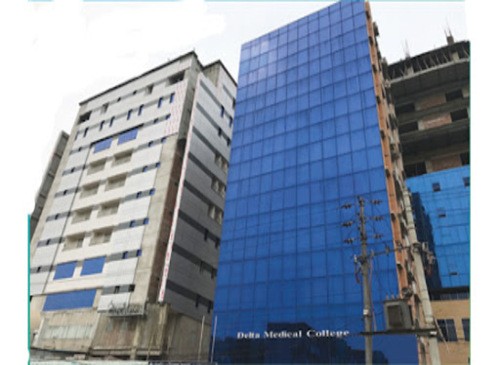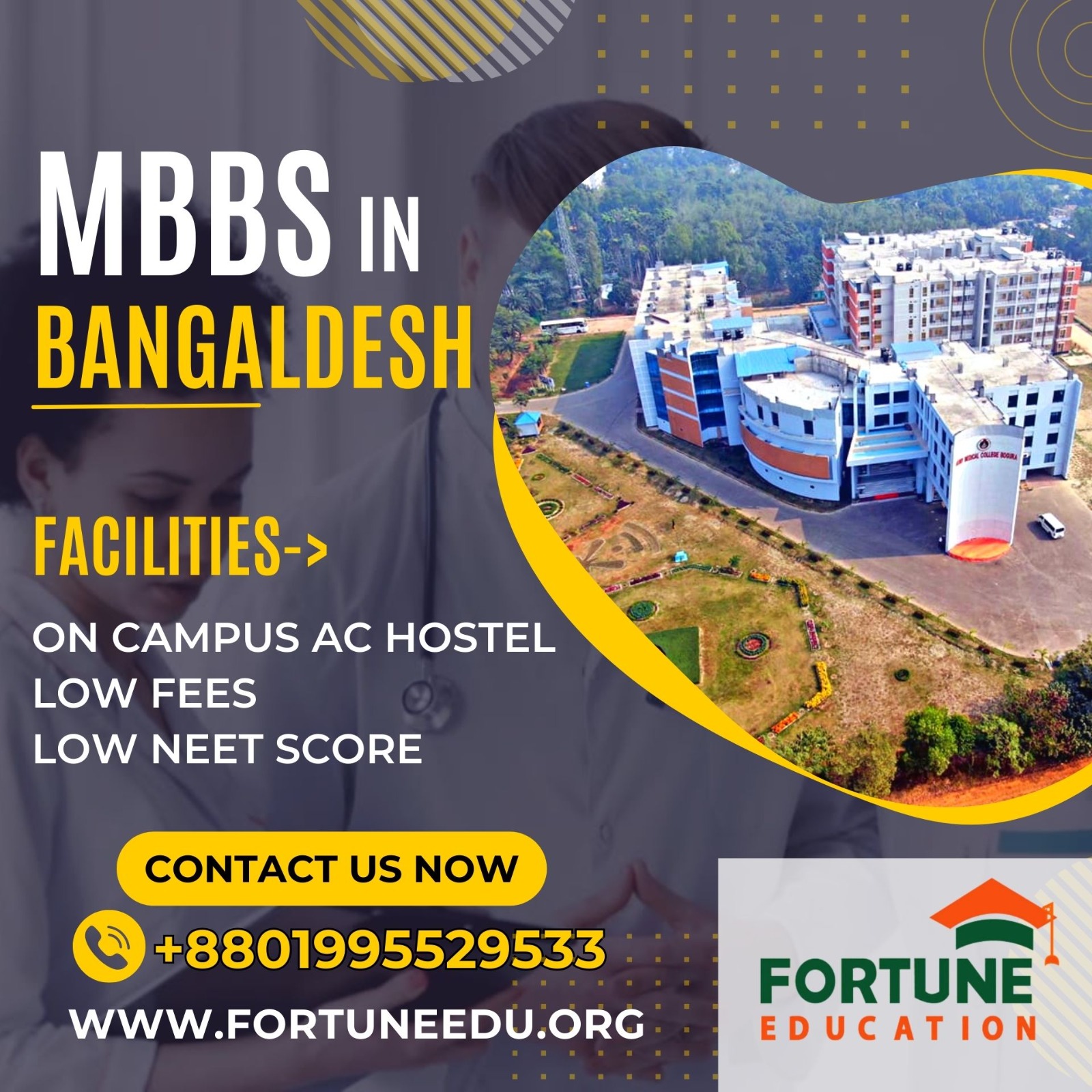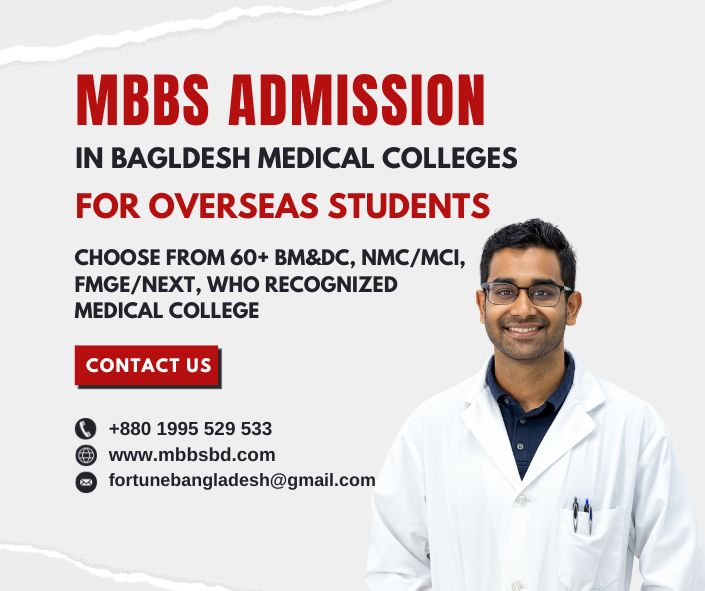Blog
Delta Medical College & Hospital Dhaka
- September 12, 2021
- Posted by: study mbbs in bangladesh
- Category: All Colleges Army Medical College Jashore ARMY MEDICAL COLLEGES IN BANGLADESH Brahmanbaria Medical College Colleges Facilities at Army Medical College Jashore & Bogura Islami Bank Medical College MBBS Admission In Bangladesh 2024-25 MBBS in Army Medical Bogura MBBS in Bangladesh MBBS in Bangladesh for International Students Medical Colleges Medical Education Abroad Best Medical Colleges Bangladesh MBBS Course Duration Admission Consultancy Bangladesh International Medical Students Online MBBS Admission Fortune Education Consultancy Study MBBS in Bangladesh 2024

Delta Medical College & Hospital
Over a decade ago, in the year 2006, Delta Medical College started its journey. Professor Dr. Syed Mukarram Ali, an internationally renowned histopathologist was the navigator of this journey. With the continuous support and efforts of the Trustee Board members, Delta Medical College is fulfilling its cherished desire towards producing human-doctor with high moral values and professional excellence. Since its establishment, Delta was never distracted from its core values.
The College offers a five-year degree of Bachelor of Medicine and Bachelor of Surgery (MBBS) and Bachelor of Dental Surgery (BDS). The course curriculum conforms to the requirements of the Bangladesh Medical and Dental Council (BM&DC), which is the registering body for doctors in Bangladesh.
The Governing Body of the college is comprised of representatives from the Ministry of Health and Family Welfare, Dhaka University, and the Trustee Board. By this time four batches of students obtained the MBBS degree and have completed their Internship while the fifth batch is currently undergoing internship. In BDS, the fourth batch of dental students is currently enrolled. Delta Medical College is equipped with modern tools and techniques of teaching that are fundamental for a better understanding of the subjects.
The teaching staff is the mentors to supervise and guide the students throughout the process. The academic schedule is strictly followed based on the academic calendar and there are also different extra-curricular activities. Delta provides a unique character of friendliness with a non-partisan and highly academic environment. The college campus is located in Mirpur-1 in Dhaka. The college is housed in its own 10 storied building and the hospital is within the same premises.
MBBS in Bangladesh
PAYMENT INSTRUCTIONS: 2024-2025
FOR SAARC COUNTRIES:
Mode of Payment:
Payment of admission fees, Development fees, Donation, and all other charges (US$ 37,250.00).
Total US$ : 50,000.00
Note: If any student does not perform their internship training in this institute (MCWH) she will get a refund of USD 2170. The total amount then to be paid USD (45000-2170) = USD 42830.
Note: Foreign Student Agent Consultancy generally fee USD 3000.
Hostel accommodation fee per year approximately: US$ 800.00
At the time of admission, all students will have to pay a minimum of one (01) year hostel seat rent in advance if they desire to live in a hostel. Hostel accommodation fees are same as a local students for one year. All students will clear their hostel seat rent before appearing in the 1st, 2nd, 3rd & Final professional MBBS examination.
If they fail in the Final Professional MBBS Examination, they will have to pay US$ 800.00 (Eight hundred US Dollars) for each attempt in all subjects and US$ 267.00 for each subject. All students will clear their tuition & others fees so long they continue their regular courses. All students have to pay any other charges which will be imposed by the concerned authority related to the MBBS course, such as RFST, study tour, autopsy visit, etc.
MBBS Admission in Army Medical Colleges in Bangladesh
Admission to MBBS programs in Army Medical Colleges in Bangladesh is a competitive process that aligns with the high standards of medical education and military discipline these institutions uphold. Here’s a general overview of the admission process and criteria:
Academic Eligibility: Candidates typically need to have completed their Higher Secondary Certificate (HSC) or equivalent, preferably with a focus on science subjects such as Biology, Chemistry, and Physics. A minimum grade point average (GPA) is usually specified, and it is often quite competitive.
Entrance Examination: Admission often involves an entrance exam that tests candidates’ knowledge in science subjects, logical reasoning, and sometimes English proficiency. The format can include multiple-choice questions and other types of questions.
Medical Fitness: As these are military institutions, candidates may need to pass a medical fitness test. This includes general health checks and specific fitness criteria relevant to military standards.
Interviews: Some Army Medical Colleges also conduct interviews to assess candidates’ motivation, communication skills, and overall suitability for a career in medicine and the military.
Age Limit and Nationality: There might be an age limit for applicants. Priority is often given to Bangladeshi citizens, although there may be provisions for international students in some colleges.
Background Checks: As with many military institutions, thorough background checks are conducted to assess the character and integrity of the applicants.
Application Procedure: The application process typically involves submitting various documents, such as academic transcripts, proof of citizenship, photographs, and a completed application form.
Seats Allocation: Some colleges may have a specific number of seats allocated for civilian students, children of military personnel, and sometimes international students.
Fee Structure: The fee structure for Army Medical Colleges can be different from public civilian medical colleges, and it’s advisable to check the specific fees, including any additional costs for military training components.
Bond or Service Commitment: Graduates from Army Medical Colleges might be required to serve in the military healthcare system for a certain period upon graduation.
For the most accurate and up-to-date information regarding MBBS admission criteria at Army Medical Colleges in Bangladesh, it’s advisable to consult the official websites of these colleges or contact their admissions offices directly. Each college may have slight variations in their admission process and criteria.
MBBS in Bangladesh for International Students
Pursuing an MBBS degree in Bangladesh is a popular choice for many international students, especially those from neighboring countries like India, Nepal, and Pakistan, due to its affordability and quality of education. Here’s an overview of what international students should know about studying MBBS in Bangladesh:
Recognition of Degree: MBBS degrees from Bangladesh are recognized by major global medical councils, including the World Health Organization (WHO) and the Medical Council of India (MCI), making them globally accepted.
Curriculum and Instruction Medium: The MBBS curriculum in Bangladesh is similar to that of many other countries, including India. The medium of instruction is English, which is beneficial for international students.
Eligibility Criteria: International students typically need to have completed their higher secondary education (or equivalent) with good grades, particularly in science subjects (Biology, Chemistry, Physics). Some colleges may require eligibility certificates from the medical councils of the students’ respective countries.
Admission Process: Admission for international students usually involves a selection process based on their secondary school grades and sometimes an entrance examination. Some colleges may have specific quotas for international students.
Duration of the Course: The MBBS program in Bangladesh typically spans six years, including a one-year internship, which is mandatory.
Cost and Affordability: One of the main attractions of studying MBBS in Bangladesh is the relatively low cost of education and living expenses compared to other countries offering medical education.
Clinical Exposure: Medical colleges in Bangladesh provide good clinical exposure to students, which is an essential part of medical training.
Cultural and Language Similarity: For students from neighboring countries, the cultural and linguistic similarities can make the transition and adaptation process easier.
Visa and Accommodation: International students will need to obtain a student visa. Colleges and universities often assist with accommodation arrangements or provide information on nearby housing.
Post-Graduation Opportunities: Graduates may need to clear the screening test of their respective countries to practice medicine. For instance, Indian students have to pass the Foreign Medical Graduates Examination (FMGE) to practice in India.




